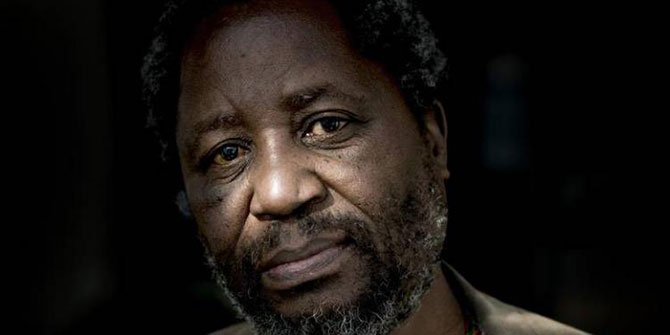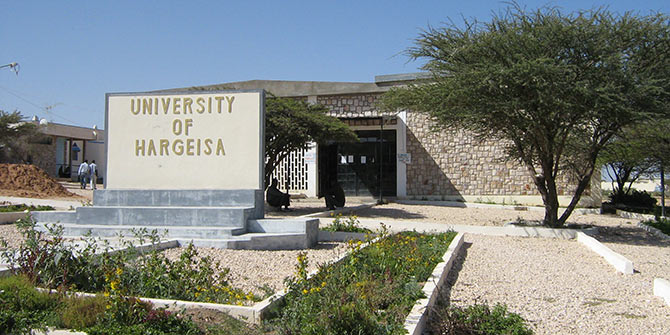Terence Jackson looks at why the informal economy is a good starting point for those wishing to understand African management practice.
There is a huge gap in the International Management literature: Africa. There is even a bigger gap within this literature: the informal economy. Okay, so a small number of management scholars are studying Africa. But what are their conclusions on Africa’s contribution to global knowledge? Most of this small blip in the management literature deals with how effective Western management and organisation is in Africa. Where is the literature on indigenous African management and organisation? What, even, is indigenousness? And, if we can find it, what can we do with it? Is it relevant to modern day management and organisation? Can we learn anything from it?
The fact that most of the Majority World (a term that is far more accurate than the derogatory and somewhat loaded term ‘Developing World’) works and lives within the informal economy has escaped the attention of most mainstream management scholars. We have to assume that some of this informality involves some form of criminality, but so does the formal economy. We also have to assume that some of this informality involves insecurity, poor wages and terrible conditions. But so does some of the formal economy.
Let’s look at indigenousness. What do management scholars see (when they think about it). Native Americans? Native Australians?
But also, something that might seem a bit exotic, and something that could have a spin put on it and made to sound useful to Western managers:
For example Tsang (1998), asks in the title of his article: ‘Can guanxi be a source of sustained competitive advantage for doing business in China.’. This is the commoditisation (and simplification) of ‘indigenous’ management concepts. Ubuntu has more recently been packaged like this to show its commercial usefulness to a Western management consumer context, giving rise to titles such as ‘Building competitive advantage from ubuntu: management lessons from South Africa’ (Mangaliso, 2001) in Western management journals.
This view also makes the idea of indigeneity rather static, frozen in time. If that is the case, if indigenous knowledge and practice is frozen in time, what happens when ‘indigenous’ people get hold of mobile phones and connect to the internet?
At least the term ‘indigenous’ has come within the vocabulary of international business and management. But I think by this most international business scholars are describing something vaguely local. For example
- Dunning (1993: 12) speaks of ‘..analyzing the net benefits of MNE activity, as compared with that of indigenous or non-MNE firms…..’
- Gooderham et al (1998: 47) compares US HRM practices ‘ ..with those of indigenous firms..’
- Cantwell et al (2004: 59), in connection with the internationalisation of R&D, speaks of ‘..indigenous technological capabilities..’
- Husted and Allen (2009: 786) mention that ‘Indigenous expressions of CSR have a long history in Mexico…’
Nowhere in this literature is a definition or a discussion of what they are talking about.
Tsui (2004) makes a stab at this when she says that indigenous research is where ‘..the context is explicitly modelled in the study, either as an independent variable or as a moderator variable. …… High quality indigenous research involves scientific studies of local phenomena using local language, local subjects, and locally meaningful constructs, with the aim to test or build theories that can explain and predict the specific phenomenon and related phenomena in the local social cultural context’ (p. 501).
Okay. This is on the right track, but it’s really missing the point.
To get the point we have to look at the wider social science literature. Here we find that indigeneity is:
- A majority view: not confined to a small minority of the Earth’s population (e.g. the assumption of ‘native Australian’ or ‘native American’), but a large proportion of the Majority World (e.g. Peredo and McLean, 2010).
- Juxtaposed to the global and a function of power and colonisation, rather than purely a function of local context in distinction to the global (Smith, 1999)
- Marginalised (Wiessner, 1999) and under-represented within the mainstream of knowledge and culture (Smith, 1999)
- Dynamic, rather than a static artifact (Briggs and Sharp, 2004: full text here), and constantly producing new knowledge and social forms within a cultural interface (Jackson, 2011: full text here); and
- A political concept (Smith, 1999): a reason why it is avoided by mainstream international management scholars (I’ve suggested, if scholars want to stay safe, they use ‘endogenous’ instead, but I suppose ‘local’ will do just as well: Jackson, 2013: full text here).
Now we have thought about this a bit more and started to understand what indigenousness is all about, where do we find it? There must be a lot of it about if we assume (as above) that it is a majority view. Let’s head to the informal economy.
The informal economy appears to represent the majority view. And it’s under pressure from globalisation and the formal economy. And it’s marginalised. And it is constantly changing, not stuck in time, despite what its bad press suggests. And, it’s a highly charged political subject. It sounds as though the informal economy and indigenousness may almost be one and the same thing.
If the Majority World mainly exists within the informal economy and, if this is a main site of indigenous knowledge and practice, don’t we as management scholars need to know something about this?
This is Computer Village in Lagos, Nigeria. It generates about US$2 billion to the economy annually. It operates within the informal economy. How many management scholars can explain how it operates? What can Western management consultants advise on how it might improve what it does?
Let’s turn this around. What can we learn from Africa? What can we learn from indigenous knowledge from Africa? What can we learn from the informal economy?
It’s probably fair to say that these questions, currently, are mostly unanswerable. We don’t really know because we haven’t undertaken the extensive research that management scholars have undertaken in the formal economy in the Minority World (I think this term is a better match to reality, rather than the over-bloated and self-satisfied ‘developed world’). But it is important to try to answer these questions. This is why:
The under-representation of indigenous knowledge in management scholarship leads to
- a lack of diversity in terms of knowledge sources (what do we know and how do we know it?),
- a deficit in idea- and concept-generation (how do we think about what we know and how do we formulate this into theories and knowledge?), and
- a lack of understanding of consequences and impact on diverse communities within a global world (are our theories and subsequent practices appropriate to the diverse organizational and social communities with which businesses and international managers come into contact?).
Are you researching in this area? Have you got something to say? Please use the hashtag #LearnFromAfrica on Twitter and join the debate. Or leave a reply underneath.
This article was first published on the author’s personal blog.
Terence Jackson (@Terence0Jackson) is Professor of Cross-Cultural Management at Middlesex University.
The views expressed in this post are those of the authors and in no way reflect those of the Africa at LSE blog or the London School of Economics and Political Science.












